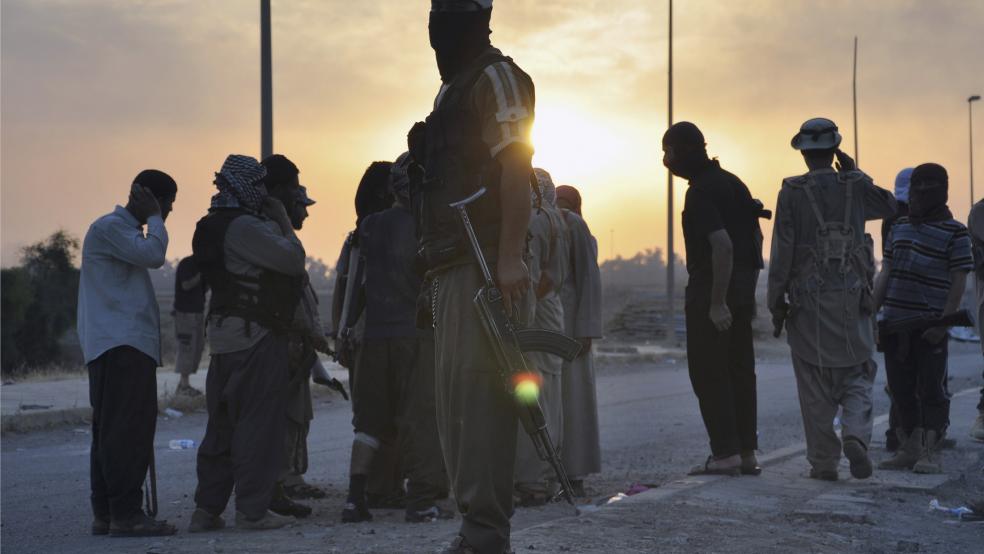Donald Trump has done what few politicians have been able to achieve in this century: He has brought disparate immigrant groups together to oppose him in what some think of as a new “melting pot.”
The concern now is, will the melting pot have a tragic meltdown?
The New York Times describes the passion and strength some Mexican immigrants are beginning to show against Trump and his hateful rhetoric. Their strategy as legal residents is to become citizens by the November election and help deny Trump the presidency. Federal data shows that naturalization applications rose 14 percent during the six months ending in January.
For Latinos, fear of deportation, separation from family and being treated as second or third class citizens is a powerful motivation.
Related: The Fight Against ISIS Now Includes Chemical Weapons
For Muslims, who have also been targeted and reviled by Trump, it’s even more: Fighting Trump, who represents a large and growing swath of the American electorate, is a matter of faith.
After a string of strong primary wins, it’s likely that Trump will be the Republican candidate for the 2016 presidential election. But what impact would his presidency have on U.S. homeland security?
The Paris attacks in November 2015, which were directed by ISIS, and the San Bernardino shooting a month later that was inspired by the terror group, illustrate the threat ISIS poses to U.S. homeland security, a danger that has become a major issue in U.S. foreign policy.
According to the conservative think tank the Heritage Foundation, the year 2015 witnessed 15 terror plots or attacks in the U.S, more than any year since 2001. At least three more were uncovered in 2016. Almost every one of these plots and attacks was inspired by ISIS. There are also about a thousand open FBI investigations concerning ISIS-related cases, in all 50 states.
Related: ISIS Marches Towards Libya’s Oil Crescent, Despite US Air Strikes
Trump has addressed the ISIS issue in many of his controversial statements. He has said that as president he would deport Syrian refugees and block any more from entering.
In November 2015, he repeatedly pledged to “bomb the hell out of ISIS.” He called for the United States to kill the relatives and loved ones of terrorists. After the Paris and San Bernardino attacks, Trump called for greater surveillance of mosques and newly arrived Muslims. He has said that he would consider shutting down mosques at home.
Finally, in early December 2015, Trump called for a “total and complete shutdown of Muslims entering the United States until our country’s representatives can figure out what is going on.” Trump recently said he would bring back waterboarding, a form of torture used by the CIA after 9/11. He also said he would use methods that go beyond waterboarding.
American Muslims and Homeland Security
The Muslim American community, which numbers close to 3 million, has recently been the subject of numerous Islamophobic incidents following the Paris attacks. These incidents include air travel profiling and attacks on mosques and Muslim individuals, including women wearing hijabs.
If Trump wins the presidency and implements an aggressive surveillance program aimed at mosques and Muslims in general, and if he goes so far as to shut down some mosques and start deporting Syrian refugees who were legally admitted to the U.S, the Muslim American community would suffer further alienation. This alienation could result in more frustration, more fuel for ISIS propaganda and more terror plots on U.S. soil.
Related: ISIS Finds a New Revenue Stream: Currency Manipulation
The reaction of Muslim Americans toward a Trump presidency would vary. On one hand, secular Muslim Americans for whom Islam is a cultural background rather than a religious commitment might be singled out for hateful assaults nevertheless. As a result, sentiments toward Islamic extremism could soften among some secular Muslims. Moderate religious Muslims could have similar experiences.
Those Muslim Americans who are more religiously extreme, yet not violent, could also embrace aspects of ISIS ideology, perhaps going a step further and supporting, aiding or even plotting attacks. Negative interactions with U.S. law enforcement or with U.S. society in general have nudged some notable leaders of radical Islam into more heinous violence.
Ethnically, Muslims living within U.S. borders are divided into three main groups: those with roots in South Asia, Africa or the Arab world. A study by George Washington University’s program on extremism found that those who were seduced by ISIS in the U.S were from all three main ethnicities of the Muslim community. (A fourth ethnic background among ISIS supporters in the U.S. is white former Christians who converted to Islam, but they are not a major part of the Muslim American community.)
Among Arab-Americans – those who are first or second-generation immigrants in the United States –radicalization often occurs in a way that is alien to average Westerners. Due to four centuries of Ottoman occupation of the Arab world, followed by several decades of Western colonization and then by several decades of brutal dictatorship colored by the Arab–Israeli conflict, many Arabs – even those who are well educated – chalk up most crises as pro-Israeli or sympathetic Western crusader conspiracies.
Related: Here’s Who ISIS Would Vote for in the US Presidential Election
In mosques, schools and homes, the imams, teachers and parents feed Middle Eastern children conspiracy theories. War in Syria, a bad movie about the prophet Mohammed or an earthquake in Indonesia can surely be blamed on some group’s wicked plans. In the Middle East, state TV, radio, Internet and social media also promote conspiracies. Some propaganda is promoted by authoritarian state actors, some by radical Islamists.
In the Middle East, dictators play the conspiracy theory card to discourage people from doing anything. When someone is consistently reminded that everything bad happening is because of overwhelming powers that are much stronger than ordinary citizens, he or she is left powerless. Radical Islam offers a solution where citizens can do something: terrorize those conspirators working against you. So, for some Arabs and Arab Americans, conspiracy is the shadow explanation for being personally soft on terror. It offers a type of relief valve for an otherwise upsetting view of the world.
Trump’s rhetoric plays right into those conspiracy theories. Given the attention his comments have gotten, it is a sure bet that ISIS would intensify its propaganda campaign with spectacular recruiting videos targeting Muslim Americans, as it has done in other places where circumstances were ripe to exploit. This technique – seen across the Middle East, South Asia, Africa and Europe -- is how ISIS has gained a foothold, particularly in Saudi Arabia, Yemen, Libya and Afghanistan. A dark imagination would predict this outcome in the U.S. as well, especially if a Trump presidency stirred up more anti-Muslim attacks and alienation.
As we mentioned in “Who ISIS Would Vote for in the US Presidential Election,” Trump wins hands-down for providing the rhetorical ammunition and news clips ISIS wants for its recruiting missions.






